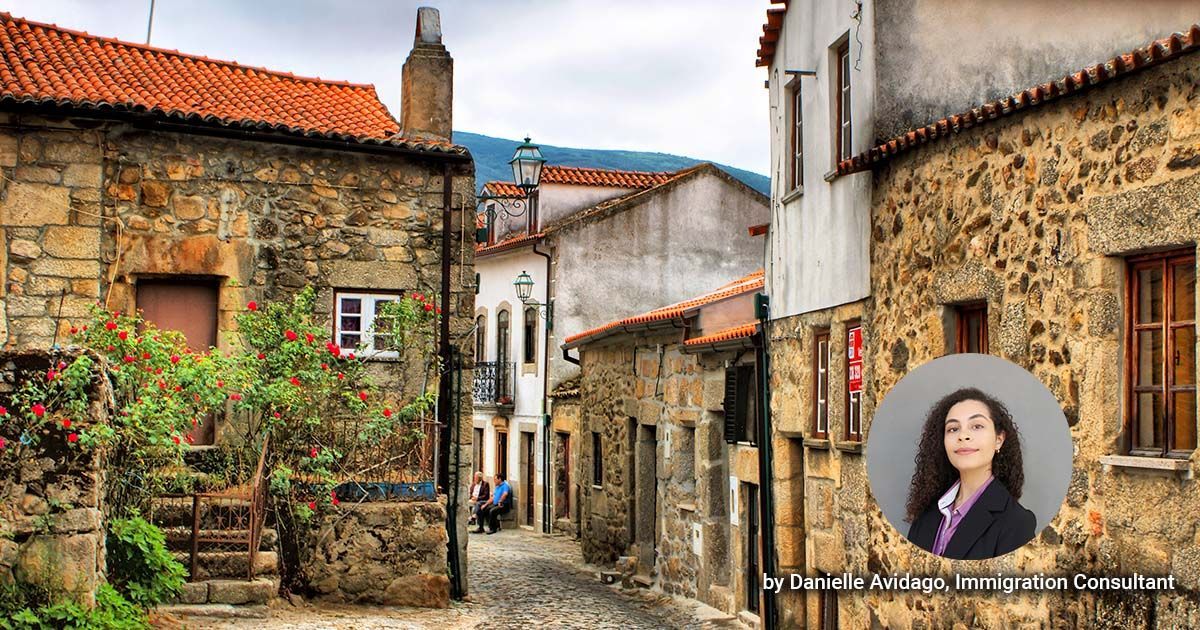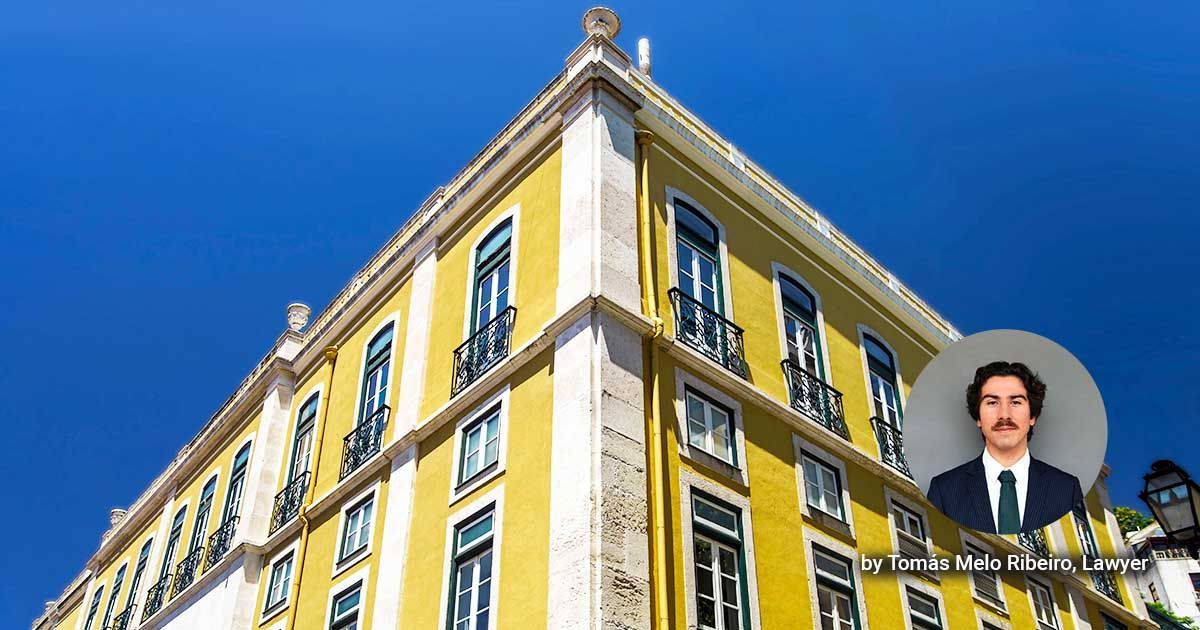Your Step-by-Step Guide to Portugal Temporary Stay Visas

Luís Maria Branco | Lawyer
Portugal is a destination that captivates the world. The country offers something for everyone, from its vibrant culture and rich history to its excellent healthcare system and growing opportunities for digital nomads. To accommodate the diverse needs of visitors and temporary residents, Portugal has developed a comprehensive range of visas. Among these are the Temporary Stay Visas (E Type), often overshadowed by long-term options like the D7 Visa or Golden Visa, but which play a vital role for individuals seeking shorter-term stays in Portugal.
Created for those planning to remain in the country for more than 90 days but less than one year, without the intention to establish long-term residency, these visas address a wide range of needs, including medical treatment, family reunification, work, study, and seasonal employment, with several attractive benefits:
- Expedited process: these visas typically involve a simpler application process, with decisions often issued within 30 days.
- Flexibility: they are designed for shorter stays but can be renewed in certain cases, allowing adjustments to the duration of the stay.
- Multiple entries: visa holders can leave and return to Portugal during its validity without jeopardising their legal status.
- Pathway to residency: these visas offer an opportunity to experience life in Portugal and evaluate the possibility of pursuing long-term residency.
The application process must be conducted in person at the Portuguese consulate corresponding to the applicant’s country of residence.
Whilst many visa types share general requirements, each visa category also includes specific documentation tailored to its purpose. Understanding these distinctions is crucial to submitting a successful application.
1. Temporary Stay Visa for Medical Treatment Purposes
If visitors require medical care in Portugal, the E1 visa is their gateway to world-class healthcare. Whether for surgeries, therapies, or specialised rehabilitation, this visa supports those needing extended treatment, particularly when specialised treatments are unavailable in their home country. Applicants must submit medical reports, documentation from a recognised healthcare institution confirming the necessity of care, and proof of financial means, which can be demonstrated through a responsibility term issued by a Portuguese resident or embassy.
2. Temporary Stay Visa to Accompany a Family Member Undergoing Medical Treatment
For family members supporting a loved one receiving treatment in Portugal, this visa ensures they can stay by their side. Proof of family ties, medical documentation, and financial means are required, with flexible options like embassy statements or responsibility terms, similar to the medical treatment visa.
3. Temporary Stay Visa in the Framework of World Trade Organisation Nationals (WTO)
The E2 visa facilitates the transfer of employees within the same company or corporate group based in WTO member states. Perfect for those in managerial, technical, or professional training roles, this visa requires documentation of the transfer and financial support, derived from employment contracts or responsibility terms issued by the host institution.
4. Temporary Stay Visa for Independent Work Purposes
Freelancers and self-employed professionals, such as consultants or artists, can thrive in Portugal with the E3 visa. A work contract or service agreement is essential, along with, if applicable, a statement verifying compliance with the professional qualifications required for the activity in Portugal. Financial means must be demonstrated through contracts or responsibility terms signed by a host entity. For those looking to expand their professional horizons, this visa opens doors to new opportunities.
5. Temporary Stay Visa for Scientific Research, Academic Teaching, or Highly Qualified Activities
Researchers, educators, or professionals in highly specialised fields may find the E4 visa an ideal opportunity to contribute to Portugal’s academic and professional landscape. This visa enables individuals to engage with leading institutions and projects. Qualification requires proof of admission to collaborate with a research centre recognised by the Ministry of Education and Science, through a work contract, employment offer, service agreement, or scholarship for research, academic teaching, or highly qualified activities in Portugal.
Amateur athletes with aspirations to train or compete in Portugal can embrace new opportunities with the E5 visa. A document from a Portuguese sports federation or club is required, along with a statement of responsibility from the club covering housing, healthcare, and repatriation costs. Candidates must also show financial means equivalent to 50% of the Portuguese Minimum Wage unless the club guarantees food expenses through a term of responsibility.
7. Temporary Stay Visa for Periods Over 3 Months in Exceptional Circumstances
The E6 visa is made for unique cases, including short-term study, student exchange, unpaid internships, volunteer work, or international commitments. Applicants must provide proof of their circumstances and necessary documentation. For study programmes under a year, required documents include an enrollment certificate, a host family statement, or proof of housing, with financial support from grants or scholarships. Internships require an acceptance letter from a recognised organisation, and financial means can be demonstrated through a responsibility term. Volunteer work requires confirmation from an acknowledged institution, compliance with age requirements, and similar financial proof. For international commitments, applicants must submit a service agreement and a certificate of technical qualification.
8. Temporary Stay Visa for accompanying family members holding a temporary stay visa
Family reunification holds a special place within Portugal’s visa framework, reflecting the country’s strong commitment to preserving family ties. The E7 visa allows eligible family members to join Temporary Stay Visa holders during their time in Portugal, ensuring families can remain united. Spouses, civil partners, minor or dependent children, and dependent parents of the visa holder or their spouse are all eligible under this category.
Candidates must provide documents proving their relationship to the primary visa holder, such as marriage or birth certificates, all duly legalised and translated into Portuguese, as well as the main applicant's National Visa request and, if applicable, a valid Residence Visa. Additionally, proof of sufficient financial means to support the family during the stay is essential. The reunification visa is valid for the same duration as the principal applicant’s visa, enabling family members to reside legally in Portugal and access healthcare, education, and other public services.
9. Temporary Stay Visa for Seasonal Work Purposes
The E8 visa opens doors to Portugal’s vibrant seasonal work opportunities in industries like agriculture, tourism, and hospitality. With a valid work contract detailing job specifics — such as location, duration, and salary — along with proof of accommodation, this visa presents an opportunity to contribute to Portugal’s dynamic economy. Employers must provide accident insurance and medical protection, ensuring workers are supported during their stay. For those who have successfully worked in Portugal before, a simplified application procedure may be applicable.
10. Temporary Stay Visa for Academic or Professional Training
Short-term academic courses or training programmes are covered by the E9 visa. To qualify, proof of admission from a higher education or training institution, along with evidence of financial means and accommodation arrangements is required.
11. Temporary Stay Visa for Remote Work (Digital Nomads)
Tailored for remote workers, this visa supports professionals employed or self-employed with clients outside Portugal. Visa seekers should produce proof of employment or service contracts, demonstrate an income of at least four times the Portuguese Minimum Wage over the past three months, and present proof of fiscal residence.
Conclusion
Portugal’s comprehensive Temporary Stay Visas offer customised solutions for a variety of personal and professional needs, allowing individuals to experience its bustling cultural scene, rich history, and thriving opportunities. The Family Reunification Visa, in particular, ensures that families remain united and supported, reflecting Portugal’s commitment to fostering strong familial connections.
How LVP Advogados Can Assist You
At LVP Advogados, we provide personalised guidance to navigate the complexities of these visa categories. If you are considering applying for a Temporary Stay Visa or have questions about Family Reunification, contact us. We are here to ensure a smooth and efficient process tailored to your needs.











